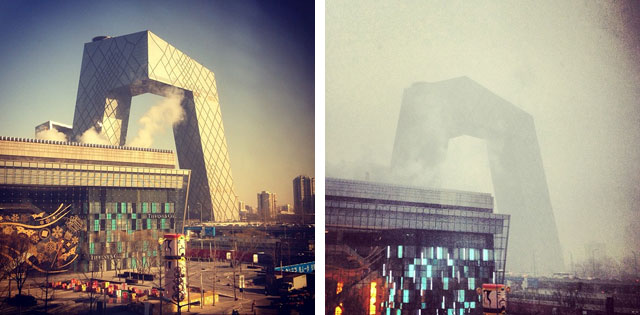Draft of US climate assessment report released
On Friday afternoon, a government advisory committee released a draft of a federal climate assessment report, which pretty much meant that no one saw it, aside from the few journalists who were tasked, at that late hour of the week, with writing something about it. The upshot of the report? Bad news and there’s not much anyone is doing about it. From Mother Jones:
Say what you want about the Obama administration’s relative ignoring of climate issues: Many of his top scientists are paying rapt attention, and they think we’re about to get our butts kicked — although dumping the news at 4 p.m. on a Friday gives some indication of where it sits in federal priorities.
Anyway, what does the report say? From Nature:
Coming just days after news that the United States experienced its hottest year on record in 2012, the draft report says average US temperatures have increased by more than 0.8° Celsius since 1895, with a sharp spike since 1980. It also provides an update on the litany of impacts being analyzed by scientists. There is “strong evidence” that global warming has roughly doubled the likelihood of extreme heat events, contributing to droughts and wildfires, according to the report. Permafrost is melting in Alaska, while much of the country is experiencing more extreme rainfall and winter snowstorms.
And from Bloomberg:
The 60-member panel approved and released a draft report today that says many coastal areas face “potentially irreversible impacts” as warmer temperatures lead to flooding, storm surges and water shortages.
“The chances of record-breaking, high-temperature extremes will continue to increase as the climate continues to change,” the panel said in its report. Temperatures are predicted to increase, on average, by 2 degrees to 4 degrees in the next few decades, according to the report.
The panel of scientists from academia, industry, environmental groups and the government prepared the report, and its findings are the closest to a consensus about global warming in the U.S. Reports in 2000 and 2009 by the U.S. Global Change Research Program concluded carbon-dioxide emissions since the Industrial Revolution have led to a warming of the Earth’s temperature, which threatens to cause extreme weather, drought and floods.
The report also highlighted decreasing air quality as a side effect of the changing climate. This weekend, the air quality in Beijing was off the scale for about 18 hours. The scale goes from 0-500:
Good: 0-50
Moderate: 51-100
Unhealthy for Sensitive Groups: 101-150
Unhealthy: 151-200
Very Unhealthy: 201-300
Hazardous: 301-500
The readings in Beijing topped out at 755. My friend Youngna is there and these two photos she took of the CCTV building two days apart shows how bad the pollution is there:






Stay Connected